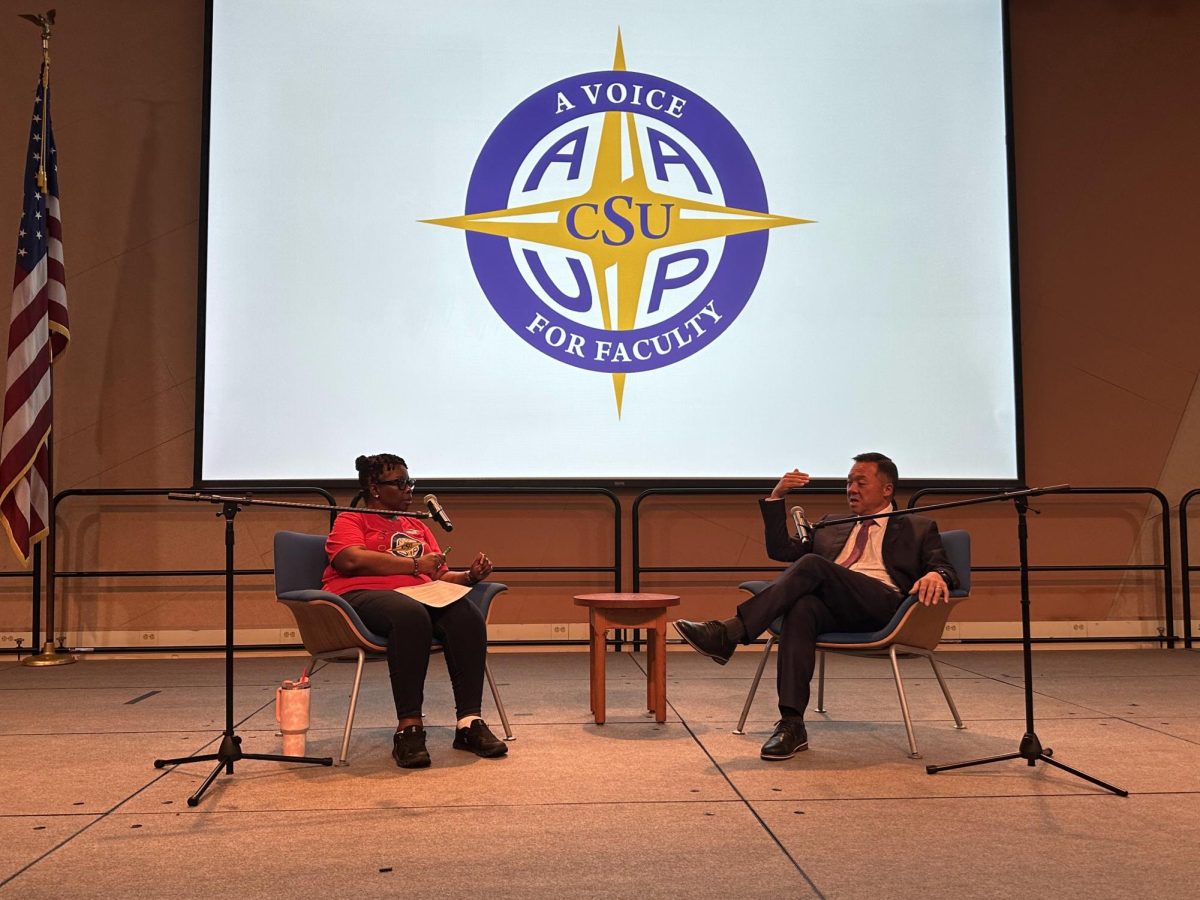By Sara Berry
With the number of budget cuts and financial problems faced by the state, shortages are no surprise in education.
Internships, a process that many feel is key to the development of a student, have been partially compromised in the psychology department, according to department chair Laura Bowman. Recently, the department has been very outspoken about the limited availability of internships and independent studies for psychology majors.
According to Joanne Diplacido of the psychology department, each department in the School of Arts and Sciences is given a certain number of credit hours for internships and independent studies, a number that is determined by Dean Susan Pease.
Faculty members receive a certain number of load credits for each internship or independent study that they supervise. Traditionally, each internship or independent study has been worth 0.3 credits. Over the past several semesters, psychology faculty members have agreed to take 0.2 credits per internship to allow all students desiring internships to be able to have them. This semester the department has been given 12 credits, giving them the ability to offer nine internships.
The reasons behind the limiting of internships is not completely clear, but two main arguments that have been addressed are budget concerns and the issue of quality internships in the School of Arts and Sciences.
“We measure quality in part by looking at the output that students have as a result of internships and independent studies,” said Bowman. This includes presentations at professional conferences as well as successful job placements, feedback from agencies where interns were placed and student evaluation of their experiences.
“Other departments run their internships differently. Sociology, for example, has a class format as does criminal justice. But communications runs their internships in a similar way to the way that we do, where there’s a partnership between the student and the faculty member,” said Bowman.
When asked about the possibility of restructuring the internship program in the psychology department, Bowman said “That’s something that the faculty decides and this is something that we have been considering for over a year. We’re to the point where we feel that it really doesn’t work for us and we’re not willing to be in a position where that is forced upon us…this situation is one that we feel is a challenge in respect to our academic freedom.”
Bowman said that there are between 640-680 psychology majors and that psychology is one of the largest majors on campus along with history, communication and criminology. Because of the large number of psychology majors and their wide variety of interests, using the class format would not work as well for the psychology department as it might for other departments whose students have interests that are more narrowly focused.
“We’re currently working on a macro level trying to garner support for our position. We’re not the only department that has concerns about the way this is being handled, so we have had some support and interest from other departments, even those who have not necessarily been directly affected,” said Bowman.
At a Faculty Senate meeting earlier this semester, communication professor Cindy White thanked the psychology department for bringing up the issue.
Faculty and students in the psychology department alike are stressing the importance of internships as learning experiences and as a means of helping students get into graduate school, as well as providing experience that potential employers look for. Bowman, who serves on the committee that reviews applications to CCSU’s graduate psychology program, said that while internships are not required, they add to the strength of an application.
“We put together 100 pages of student testimonials, examples of posters that we’ve presented at different conferences that are all student driven, and we’ve given them to the Provost and the Dean,” said faculty member Marianne Fallon.
Earlier in the semester, Jason Sikorski and Rebecca Wood brought to the Faculty Senate documentation of the impact that internships have on student experiences and attitudes toward their education and readiness for graduate study.
This semester, the psychology department had 17 students apply for internships and independent studies, but were only able to accept nine of those applications due to the department’s 12 credit maximum. Some of the students that applied for internships rearranged their schedules to accommodate their internship but ended up not being able to do an internship and having to add an extra class.
This issue is ongoing, with no clear solution in sight.
“It’s not going to be resolved this semester. This is something that will likely take a while longer. We’re trying to get it done with as quickly as possible, but the fact is that it’s not going to be resolved this semester and may not even be resolved next semester, “ said Bowman.







SimplyJerry • Mar 1, 2011 at 6:37 pm
It is interesting to note that the Dean of Arts and Sciences has not weighed in on this matter. It doesn't surprise me with her absence. It seems that anything that other departments are seeking are immediately provided, yet, the Psychology Department is left holding their hands out. What Dean Pease is missing is the fact that much can be learned in the classroom, yet practical experience is what employers are looking at as well. I doubt that the students in the Criminology Department only receive their experience through a book. If that is the case, then I fully understand the issues of rehabilitation within our prison system. Many of the students in that program would not get the exposure to the real life elements of being within the walls of a prison without some sort of internship, yet, the individual who is seeking an expertise within the field of psychology it appears, doesn't need that type of exposure.
I am not comparing apples to oranges in this situation. The internship and the independent study is a very useful and excellent tool for weeding out those that don't know what they are getting into and also weeding out those that are not suitable for the program. Dealing with a convict within the confines of a prison is not an easy task by any stretch of the imagination. This can also be the situation that an individual that wishes to go into the field of mental rehabilitation or drug and alcohol rehabilitation faces as well. In either of these instances either individual never knows what to expect and reading a text book does not prepare you for it. I can fortunately speak from experience and anyone that enters any institution that houses people for mental disorders or for criminal behavior that believes what they learn in the classroom is all they need has a very rude awakening coming.
It is about time for Dean Pease to stop playing ostrich and get out and listen to the faculty that has experienced these situations. The value rests with those that have been exposed to the situation before hand, rather than taking in a new individual that thinks mental disorders are completely outlined in a text book and as long as they follow the teachings of the professor they will never have a problem. Don't continue to rely on your ignorance Dean. Speak to those that have been down that road. I select professors based upon their expertise within a field that have been out in the real world and have been exposed to what they are teaching. I have a great deal of admiration and respect for those that have done it and now are willing to train the next group to take over. Teaching someone how to perform surgery cannot be strictly done in a classroom. At some point they are going to be faced with a patient that needs surgery and I don't think we would trust him much if he comes in with his/her text books and says this is his first time doing this procedure.